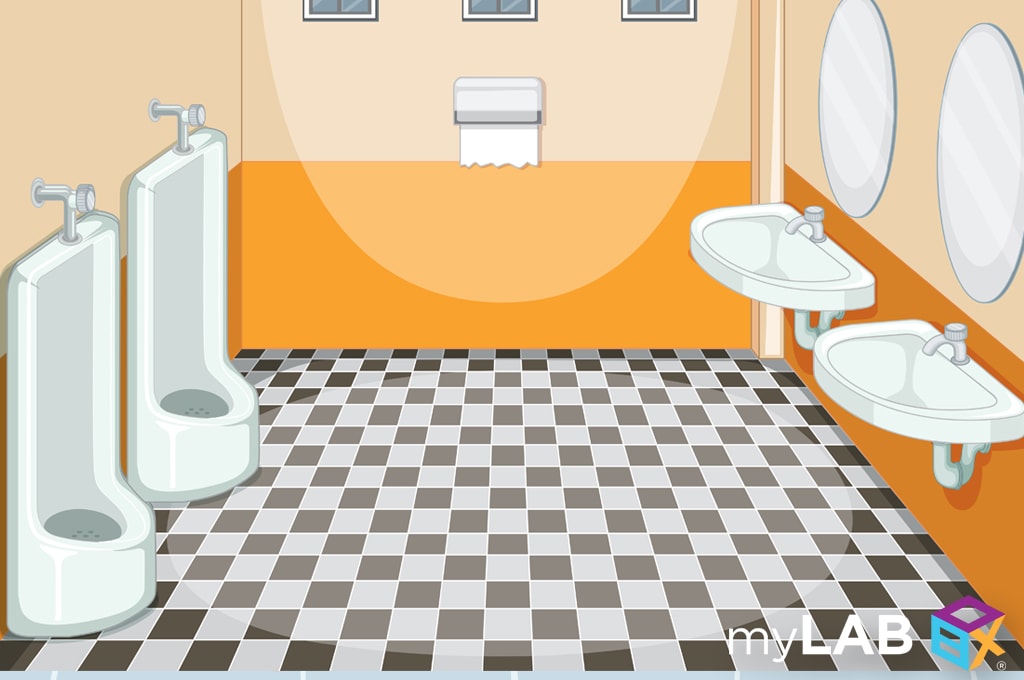Urine Trouble: What STDs Cause Frequent Urination?

When it comes to sexually transmitted diseases (STDs), there are quite a number of personal questions. At myLAB Box, one of our most frequent queries is “What STDs cause frequent urination?”
Truth be told, we take this very seriously. After all, we’re in the middle of an STD epidemic. According to the Centers for Disease Control and Prevention (CDC), STDs are at a record high. To make matters worse, this epidemic is accelerating in multiple populations— the impact on women, infants, and gay and bisexual men is growing.
Of course, not every STD causes urination trouble. Of the most common STDS, there are only a specific few that include this side effect.
Why Do Some STDs Cause Frequent Urination?
Frequent urination often occurs due to an issue with the urethra. This tube transports urine from the bladder down and out of our bodies. For a situation in which the urethra is inflamed or infected, urination can become painful. Other times, it can have you running to the bathroom more often than expected.
This symptom can be a result of several potential causes, including:
- A urinary tract infection, or UTI
- Enlarged or inflamed prostate in men
- A prolapsed bladder
Of course, at myLAB Box, we’re most specifically interested in what STDs cause frequent urination. More often than expected, it seems that men are more likely than women to experience STD-related urinary symptoms.
What STDs Cause Frequent Urination?
Chlamydia and Gonorrhea
Both chlamydia and gonorrhea are STDs that can cause frequent urination. These are among the most common STDs diagnosed in the United States. In fact, as recently as 2016, the CDC reported nearly 1.6 million cases of chlamydia across the country. For gonorrhea, the CDC estimates as many as 820,000 new cases each year. Obviously, these numbers are nothing to laugh at.
Typically, both of these infections are asymptomatic. This means that they do not often show physical symptoms. Of course, “often” does not mean “never.” In the cases that do display symptoms… both infections can easily be mistaken for a UTI. For both men and women, painful and frequent urination can be a sign of chlamydia or gonorrhea.
This is why regular STD testing using an at-home testing kit from myLAB Box is so valuable. Fortunately, chlamydia and gonorrhea testing is easy. Both are combined into a single test kit for maximum convenience.
To better learn the signs and symptoms of chlamydia, please refer to this post.
To further understand gonorrhea, this post will be your guide!
Herpes
Genital herpes is another common STD that can cause frequent urination. The CDC estimates that at least 50 million people across the nation are infected with genital herpes. Sadly, this is yet another asymptomatic infection. Many of the people who are infected with this infection may not even realize they are carrying the STD. In certain cases of genital herpes that do show symptoms, though they are admittedly uncommon, this STD can cause painful urination due to urethritis, or inflammation of the urethra due to a bacterial infection. This can also cause more frequent trips to the bathroom.
To learn more about herpes, read this blog post.
Mycoplasma genitalium
Here’s an STD that not many people are aware of: mycoplasma genitalium. This infection was first identified in the early 1980s and, surprise, surprise: it’s another STD that is considered to be asymptomatic. It can cause painful urination and discharge in both men and women. For men in particular, it can cause urethritis.
Testing for this STD has only recently become available for use in clinical settings. myLAB Box is one of the only services to offer at-home testing options for Mycoplasma genitalium. To learn more about mycoplasma genitalium read this post.
Trich
Trichomoniasis, or trich, is yet another STD that can cause frequent urination. Once again, in most cases an infected person will notice few to no symptoms. For men, the infection can cause dysuria, a mucus-like discharge, scrotal pain and increased urinary frequency. Women with trich may experience an odorous vaginal discharge and painful urination. However, here’s a small silver lining: women don’t often suffer from more frequent urination.
To learn more about more symptoms of trich, check out this blog post.
If there is one lesson to be learned today, it’s that regular testing is the key to securing your sexual health. Fortunately, with at home testing from myLAB box, you can test from anywhere and at any time. It could not be more convenient.
Popular Tests

Total Box
14 Panel STD Test
In Stock – Free Shipping
$369 – $399
